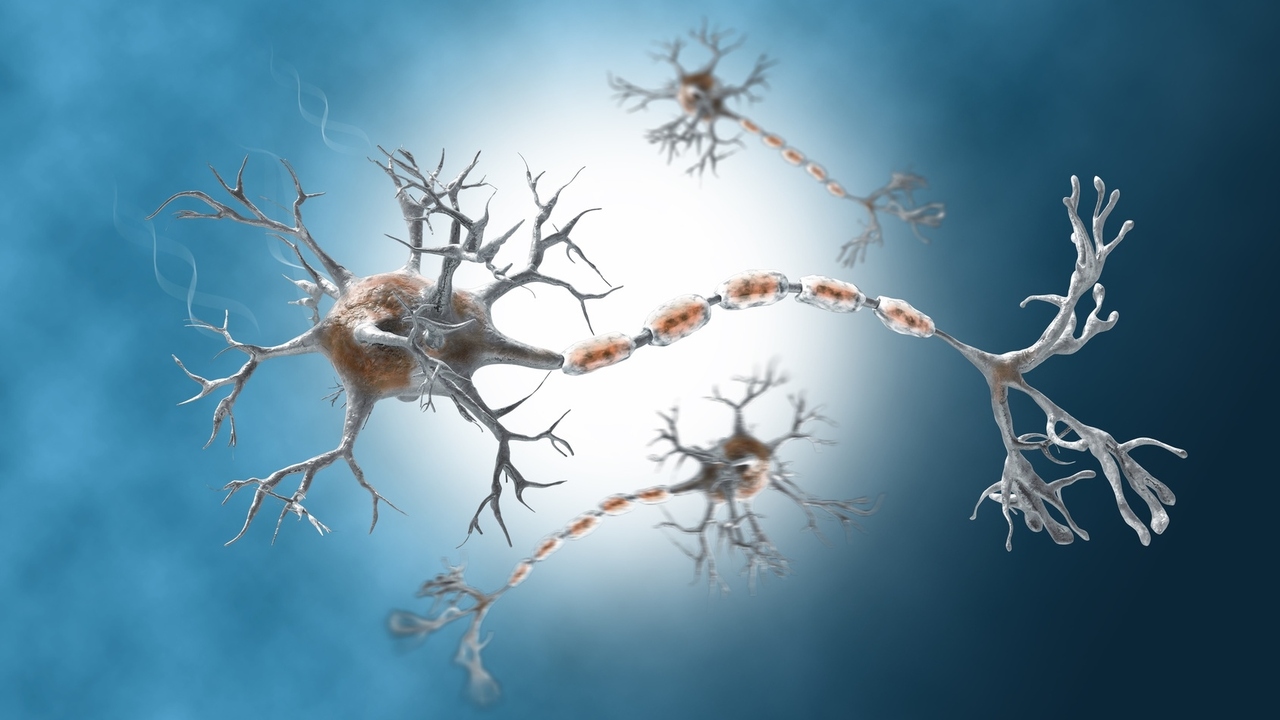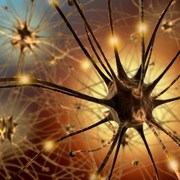Guillain Barre syndrome has been described as “one of the best examples of a post infectious immune disease” (Ref. 1). It is also the most common form of neuromuscular paralysis in developed countries, and the only autoimmune disease to be strongly linked to a vaccination.
Autoimmune diseases in general are not well understood. In many cases, they appear to be triggered by ordinary infections. The immune system reacts to kill the invading microbe, and then continues to run in high gear. One hypothesis is that the invader stimulates the adaptive immune system to misidentify some part of the body's own cells as part of the infection. Guillian Barre syndrome is linked to infections with:
2. Cytomegalovirus, which is a silent infection with no symptoms in 50% to 70% of Americans. It can cause disease in babies and in people with weakened immune systems.
3. Epstein Barr virus, a common virus that causes mononucleosis
4. Upper respiratory illnesses from a variety of pathogens.
There has been concern that if infections can trigger autoimmune disease, then maybe vaccinations can too. The 1976-77 swine flu vaccine in the United States was linked to an increase in cases of Guillain Barre syndrome which started within 5 weeks after the vaccine. The risk was estimated at one case of Guillain Barre syndrome per 100,000 vaccines. For flu vaccines since that time, the risk is estimated at one case per million vaccinations. The National Vaccine Injury program provides legal expenses and possible compensation for individuals who experience adverse effects following vaccination.
The symptoms of Guillain Barre syndrome include weakness or paralysis of the arms and legs, which may progress to full quadriplegia, and respiratory difficulty. In severe cases, positive pressure ventilation may be required. Recovery usually starts within 2 – 4 weeks of the first symptoms, but many patients need months of rehabilitation. The primary treatment is good intensive care with respiratory support when needed. Immunotherapies including plasma exchange and intravenous immunoglobulin have shown positive results. Steroids are generally not effective.
Guillian Barre syndrome affects mostly young people and may cause long term disability. However, approximately 80% are back on their feet within 6 months.
References:
1. Winer JB, “Guillain Barre syndrome”, J Clin Pathol: Mol Pathol 2001;54:381-385.
2. Khan F, “Rehabilitation in Guillian Barre syndrome”, Australian Family Physician 2004 Dec; 33(12): 1013-1017.
3. Vial T et al, “Autoimmune diseases and vaccinationations”, Eur J Dermatol 2004; 14: 86-90.
4. National Vaccine Injury Compensation Program:
https://www.empowher.com/news/herarticle/2009/11/03/national-vaccine-injury-compensation-program-part-1-who-qualifies
5. Cytomegalovirus information from the Centers for Disease Control:
http://www.cdc.gov/cmv/facts.htm
6. Epstein Barr virus information from the National Library of Medicine:
http://www.nlm.nih.gov/medlineplus/tutorials/epsteinbarrvirusmono/id299103.pdf
7. Campylobacter jejuni information from the FDA:
http://www.fda.gov/Food/FoodSafety/FoodborneIllness/FoodborneIllnessFoodbornePathogensNaturalToxins/BadBugBook/ucm070024.htm
Linda Fugate is a scientist and writer in Austin, Texas. She has a Ph.D. in Physics and an M.S. in Macromolecular Science and Engineering. Her background includes academic and industrial research in materials science. She currently writes song lyrics and health articles.






Add a Comment5 Comments
Excellent question. I have not yet found the answer. I did find an article entitled "Should I have an H1N1 flu vaccination after Guillain-Barre syndrome?" on PubMed; the reference is BMJ. 2009 Sep 9;339:b3577, PMID: 19740925. Unfortunately the abstract is not available. I'll keep on eye on the medical literature for this one.
December 11, 2009 - 1:31pmThis Comment
Thank you very, very much, Linda. I appreciate it. I'll keep an eye on your posts should anything turn up. And thank you again. Not many people write about Guillain-Barre and it's a fascinating topic as well as being a frightening condition. Thanks again.
December 14, 2009 - 7:53amThis Comment
Linda,
This was a fascinating post. My husband developed Guillain Barre when he was about 12 or 13 one summer; he doesn't remember whether he'd had a virus or a vaccination ahead of that, but he did make a full recovery, thank heavens.
I often hear cautions in the "Who Should Not Have A Flu Shot" category for those who have had Guillain Barre previously. Is there a higher incidence among those who had it once before?
December 11, 2009 - 8:21amThis Comment
Thanks, Pat! This syndrome is horrendous, but VERY rarely caused by flu shots, and not fatal. Flu can be fatal, so I think there is no reason to shy away from flu shots. But for the few people who do get Guillain Barre syndrome after a flu shot, I hope everyone is aware of the possibility so they can get treatment immediately.
December 9, 2009 - 8:25pmThis Comment
Hi Linda - A friend of mine is among those who developed Guillain Barre syndrome after having a swine flu vaccine in 1977 and he's still dealing with the after effects today. His situation has caused me to have concerns about Guillain Barre each time I get a flu shot. I was glad to read that the estimated risk has gone from one case of Guillain Barre syndrome per 100,000 vaccines to the current estimate of one case per million vaccinations - a HUGE difference. Thanks for sharing this with us! Pat
December 9, 2009 - 5:48pmThis Comment